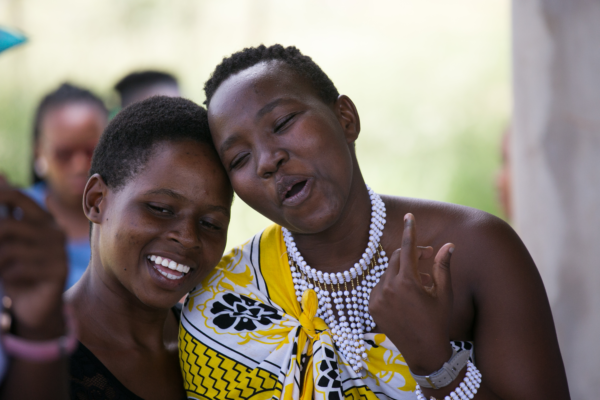In the wake of COVID-19, girls need support to stay in school, now more than ever
Last month, the Malala Fund issued a report about the increased dangers that girls around the world are facing since the COVID-19 pandemic closed schools, and with them, a pathway out of poverty.
The report applies learning from the 2014-15 Ebola epidemic and the 2008 global financial crisis to understand the short- and long-term consequences of COVID-19 for girls, and estimates that as many as 10 million secondary school-age girls will remain out of school following the crisis. Girls needed our help before this crisis; now, more than ever, they will need targeted support to return to school, and stay in school.
The Malala report cites fear and poverty as two conditions that are likely to keep children out of school, drawing on comparisons to the Ebola epidemic: “Families suffered large dents in their income due to the economic shock associated with the outbreak and could not afford to send their children back to the classroom. Sierra Leone registered a 19% increase in the number of girls ages 12 to 17 engaged in income-generating activities. In Liberia, the number of primary school-age girls out of school tripled, and in Guinea, girls were 25% less likely than boys to enroll in secondary school compared with pre-crisis levels. Girls’ enrolment—already lower than boys’—did not return to pre-crisis levels.”
The report goes on to note that “in the face of greater poverty and parental mortality, girls took on more domestic responsibility and were at increased risk of sexual exploitation, with many forced into transactional sex. Figures show that the outbreak caused the overall teenage pregnancy rate to double.” These figures are likely elevated in part by gender-based violence—already high in many developing countries and known to increase during times of economic shocks.
Given that the economic consequences of the COVID-19 pandemic will be more severe and widespread than the Ebola epidemic, we can anticipate similar or worse effects on girls’ education and their economic and health trajectories. This pandemic will be with us for a long time, likely even longer in places like sub-Saharan Africa, where vaccines will be slow to be available and take hold. That could mean year-over-year negative effects on girls and their access to viable pathways out of poverty and equitable access to healthy, stable futures.
World Education’s Bantwana Initiative works with some of the most vulnerable children in sub-Saharan Africa, including adolescent girls and young women, linking them to critical health and social services.
Bantwana supports many thousands of vulnerable girls – including girls and teen moms who have dropped out of school (through PEPFAR’s DREAMS and OVC funding, Global Fund, UNICEF, and UN Trust Fund to End Violence Against Women, and others) . These girls are among the hardest to reach and most expensive to support programmatically, and face numerous economic and social barriers to program uptake, including stigma. They are hard to help and we may soon have many millions more of these girls.
As the pandemic rages, the international development community must rally behind the progress made thus far on behalf of girls, and make proactive and strategic investments to keep them in school.
In both Zimbabwe and Eswatini, Bantwana launched early warning systems that identify girls who are at-risk of dropping out of school before they actually drop-out, and provides key supports to keep them in school. It is far easier and more realistic to help girls while they are still in school than it is to try reaching them after they have dropped out, by which time their lives have started to fall apart.
A hallmark of Bantwana’s approach is partnership with governments to scale sustainable solutions. Early warning systems, developed and implemented in partnership with governments, can reach millions of girls and offer cost efficiencies and meaningful support that is “right-timed.” The alternative is costly funding that reaches a fraction of girls once their lives have already been derailed, with marginal success.
World Education’s Bantwana Initiative has partnered with World Vision on a proposal to build early warning systems in four countries of southern and east Africa. The proposal has been short-listed by the MacArthur Foundation in its 100&Change competition for a single $100 million grant to help solve one of the world’s most critical social challenges.

